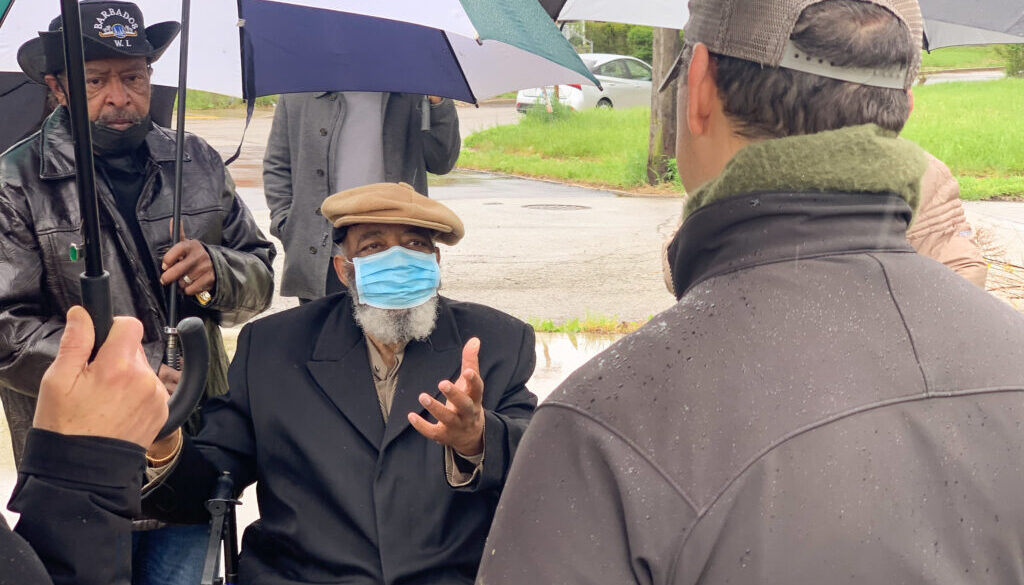EPA delay threatens fenceline communities near steel and coke plants, report warns
Listen to the audio version of this article (generated by AI).
Steel and coke plants in the US are regularly releasing illegal amounts of air pollutants and the Trump administration’s delay on stricter rules at these plants leaves fenceline communities struggling for long-sought federal help, according to a new report.
The report, released by the Environmental Integrity Project (EIP), examined federal data for the 20 steel and coke plants that operate in the US. The sites are located in Pennsylvania, Indiana, Alabama, Illinois, Ohio and Michigan. Coke plants convert coal into coke, an ingredient in steelmaking. Some steel plants recycle scrap metal and turn it into steel, but those were not included in the report.
It has long been known that such facilities are major sources of air pollution, including highly toxic compounds such as benzene and chromium. But the report found that most of the plants — 17 out of 20 — have failed to comply with provisions of the Clean Air Act for at least one quarter in the past three years. And half of the plants were out of compliance for all three years.

One of the offenders, the U.S. Steel’s Clairton Coke Works plant in Clairton, Pennsylvania, was the site of a deadly accident on August 11 when an explosion there killed two workers and hospitalized 10 other people. The plant racked up more than $10.6 million in Clean Air Act penalties over the past five years.
The report comes as the Trump administration is moving to delay new rules aimed at protecting people living near these plants.
Last year, the Biden administration drafted new rules requiring steel and coke plants to conduct fenceline testing for chromium and benzene, to cut emissions if pollutants exceeded limits, and to close loopholes that allowed plants to avoid emissions reporting during malfunctions, among other changes.
However, in July the Trump administration’s Environmental Protection Agency (EPA) delayed these compliance deadlines for both coke ovens and steel plants to 2027.
Jen Duggan, executive director of the Environmental Integrity Project, said in a press conference that while steel is an “essential part of modern life and the economy … it can’t be at the expense of the health and safety of workers and individuals near these plants.”
“Hazardous air”
The most recent federal data, drawn from 2023, shows the plants reported emitting 289,772 tons of harmful air pollutants regulated by the EPA , including lead, particulate matter, nitrogen dioxide and sulfur dioxide. The plants also released the greenhouse gas equivalent of more than 10 million gas cars driven for a year, the report found.
Duggan said industry reported emissions often underestimate actual emissions including “leaks from pipes, valves or flaring of waste gases … which are sometimes impossible to measure directly.”

Qiyam Ansari, executive director of the Valley Clean Air Now in Pennsylvania, said during the press conference that his organization responded to the recent explosion at U.S. Steel’s Clairton Coke Works, providing masks and air purifiers to people in the area, but “no emergency response undoes the daily exposure to the hazardous air people here live with.”
The EIP report said that eight of the 20 plants reported emitting more than 239,353 combined pounds of benzene, which is known to cause cancer. And 10 plants reported emitting a combined 1,940 pounds of chromium, which is tied to a range of health problems, including breathing problems, ulcers, and damage to the reproductive system. One form of the pollutant, (hexavalent chromium), is a known carcinogen.
“The delay and potential repeal of these rules would harm nearby communities. Air monitoring data collected while these regulations were being developed shows that some facilities have dangerously high levels of toxic air pollutants at their fencelines,” the authors of the new report wrote.
Industry applauds delay
When asked about the delays, EPA spokeswoman Brigit Hirsch said in an emailed response that “the Trump EPA inherited a big mess when it took over from the previous administration” and recognized these deadlines were “infeasible.”
The EPA delays were, in part, driven by industry petitions from the American Coke and Coal Chemicals Institute, SunCoke Energy, U.S. Steel Corporation and Cleveland-Cliffs that argued the industry needed more time to comply.
“It’s commonly accepted and good practice for regulators to discuss technical details and information with regulated industries,” Hirsch said. “Not doing so results in uninformed regulations and bad outcomes for the American people.”
“It’s commonly accepted and good practice for regulators to discuss technical details and information with regulated industries. Not doing so results in uninformed regulations and bad outcomes for the American people.” -EPA spokeswoman Brigit Hirsch
Andrew Fulton, a U.S. Steel spokesman, said the company “supports revisions to regulations that are within EPA’s statutory authority, based on sound science, and are technically feasible.”
“The 2024 rules were not risk driven but were developed based on a misinterpretation and application of the Clean Air Act,” Fulton said, adding that “environmental stewardship is a core value at U.S. Steel.”
Duggan pointed out that similar fenceline monitoring requirements have been required at petroleum refineries for nearly a decade and have helped reduce the number of refineries exceeding the EPA’s benzene fenceline standard from 12 in 2020 to six in 2023.
This is “proven technology that has demonstrated success,” she said.
Both the coke plant and steel plant rule delays are being challenged in court.
Advocates and residents say fenceline monitoring near these plants is critical. Some of the plants did a trial run of fenceline monitoring while the rules were being developed and results suggested that benzene and chromium emissions were underreported, according to the new report.
“Benzene is not a number on a chart, it is a cancer-causing chemical that families in Clairton breathe every day,” Ansari said. “Fenceline monitoring is the bare minimum needed for justice.”
Featured image: An EPA representative visited southwest Pennsylvania in 2023 to hear from residents about concerns over air pollution from a nearby steel plant. (Credit: Mark Dixon/flickr)



